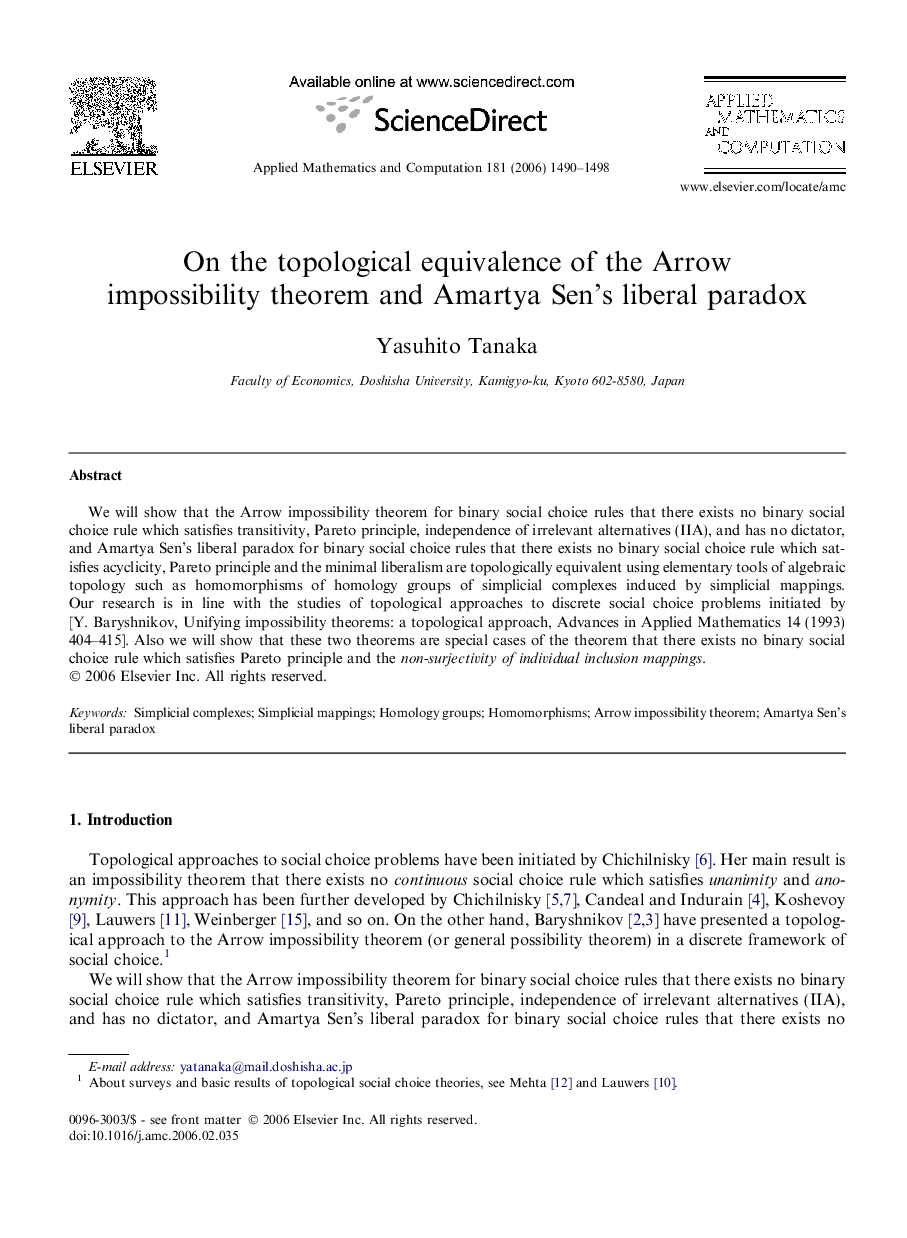| Article ID | Journal | Published Year | Pages | File Type |
|---|---|---|---|---|
| 4635768 | Applied Mathematics and Computation | 2006 | 9 Pages |
We will show that the Arrow impossibility theorem for binary social choice rules that there exists no binary social choice rule which satisfies transitivity, Pareto principle, independence of irrelevant alternatives (IIA), and has no dictator, and Amartya Sen’s liberal paradox for binary social choice rules that there exists no binary social choice rule which satisfies acyclicity, Pareto principle and the minimal liberalism are topologically equivalent using elementary tools of algebraic topology such as homomorphisms of homology groups of simplicial complexes induced by simplicial mappings. Our research is in line with the studies of topological approaches to discrete social choice problems initiated by [Y. Baryshnikov, Unifying impossibility theorems: a topological approach, Advances in Applied Mathematics 14 (1993) 404–415]. Also we will show that these two theorems are special cases of the theorem that there exists no binary social choice rule which satisfies Pareto principle and the non-surjectivity of individual inclusion mappings.
